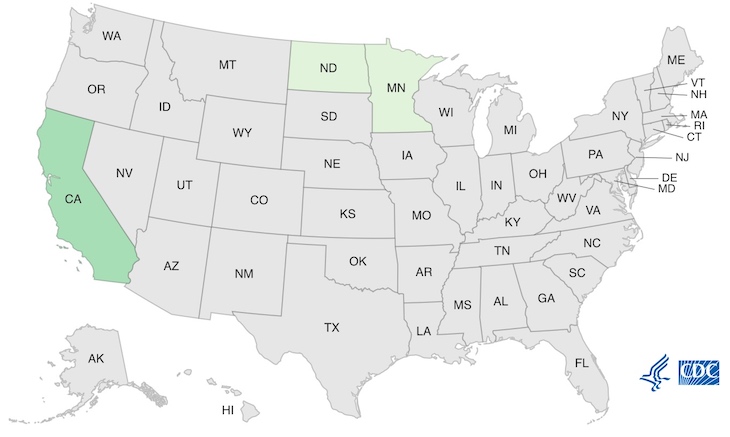The strawberry hepatitis A outbreak has ended with 18 sick, including one probable case, and 13 hospitalized, including 1 probable case, according to the Centers for Disease Control and Prevention (CDC). The illness were linked to FreshKampo and HEB organic strawberries.

The case count by state is: California (16), Minnesota (1), and North Dakota (1). Illness onset dates range from March 28, 2022 to May 6, 2022. The patient age range was from 9 to 73 years.
Epidemiologic and traceback evidence has indicated that fresh organic strawberries were the likely source of this outbreak. In interviews, 73% of patients reported eating fresh organic strawberries before they got sick.
If you purchased either brand of strawberries during the time period of March 5, 2022 through April 15, 2022 and froze them for later consumption, throw them away. If you aren’t sure which brand you bought or where you bought them, throw them away. The strawberries may have been sold at these retailers, and may have been sold through other venues: HEB, Kroger, Safeway, Sprouts Farmers Market, Trader Joe’s, Walmart, Weis Markets, and WinCo Foods.
The strawberries were imported from Baja California, a state in Northern Mexico. The Public Health Agency of Canada also investigated an outbreak of hepatitis A. Imported FreshKampo brand fresh organic strawberries were identified as the likely source of that outbreak.
Symptoms of hepatitis A usually start 15 to 50 days after exposure to the virus. People usually experience lack of appetite, upset stomach, stomach pain, vomiting, fever, diarrhea, lethargy, joint paint, dark urine, light clay colored stools, and yellow skin or eyes (jaundice).
If you think you have eaten these fresh organic strawberries and have been ill with the symptoms of hepatitis A, see your doctor. You may be part of this outbreak.

If you have been sickened with a Listeria infection, please contact our experienced attorneys for help with a possible lawsuit at 1-888-377-8900 or text us at 612-261-0856. Our firm represents clients in lawsuits against grocery stores and food processors.




